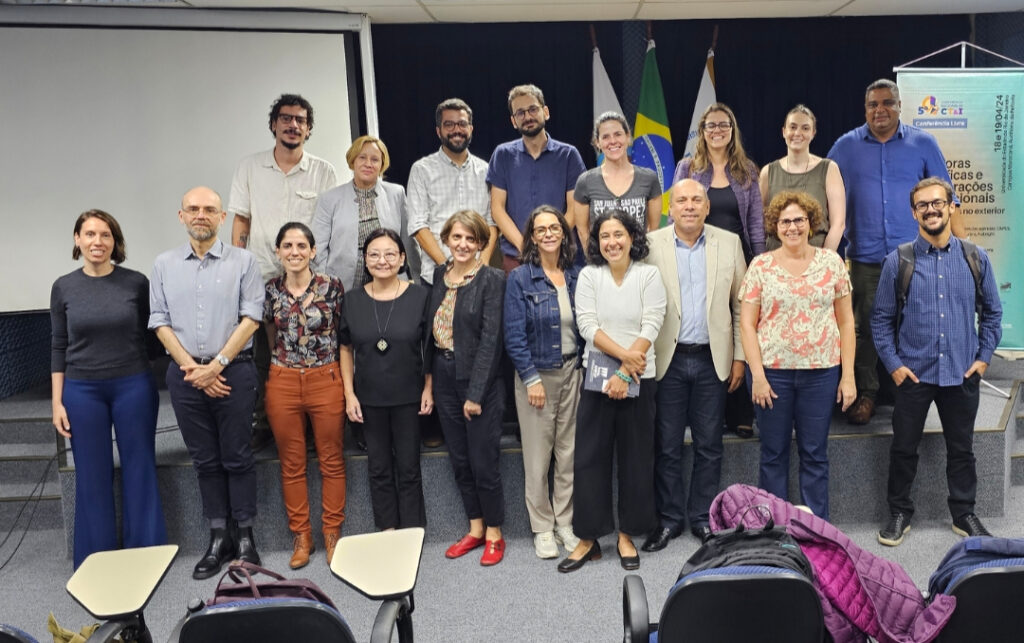Researchers who are part of the Research on Research and Innovation project took part in the “Scientific Diasporas and International Collaborations Colloquium: Brazilians Abroad” event. The colloquium was part of the Free Conferences program of the 5th National Conference on Science, Technology, and Innovation (5CNCTI, as portuguese abbreviation) and took place on April 18 and 19 at the State University of Rio de Janeiro (UERJ).
The activity was attended by researchers Ana Maria Carneiro, coordinator of Front 3, and Ana Maria Gimenez. The event was organized through a partnership between UERJ, the University of Montreal, the State University of Campinas (Unicamp), and the South-South Exchange Programme for Research on the History of Development (SEPHIS).
The colloquium promoted a debate on the role of the Brazilian scientific diaspora in shaping an agenda for the internationalization of science. Through its Front 3, the Research on Research and Innovation investigates the professional trajectories and mobility of Brazilian researchers, contributing to the discussion with data identified in the project.
Among the contributions identified as a result of the debate is the need to reposition what is understood by the scientific diaspora, with highly qualified Brazilians abroad being perceived as potential individuals and groups for international collaboration and cooperation, rather than the traditional conception of “brain drain”.
“There is no single Brazilian scientific diaspora abroad. There are several Brazilian diasporas if we look at the stability of the bond, time spent abroad, location, etc. Knowing this is important for thinking about engagement policies. You cannot have a single policy thinking that it will cover everything.” explains researcher Ana Maria Carneiro.
Furthermore, another point raised by the researchers was that the employability and retention in Brazil of Ph.D. graduates from abroad need to take into account the conjunctural and structural issues of the country. These understandings should ultimately involve the recognition of the potential of existing networks of the Brazilian scientific diaspora abroad for national science.
The synthesis report produced at the end of the colloquium was forwarded to 5CNTI to contribute to the debate on the national policy for Science, Technology, and Innovation. Additionally, the theme of qualified discussion on the diaspora was suggested for the sessions that will comprise the Conference’s program. Furthermore, the researchers intend to draft a more comprehensive document that can positively support institutions such as the Coordination for the Improvement of Higher Education Personnel (Capes) and the National Council for Scientific and Technological Development (CNPq), both of which also sent representatives to the discussion.


